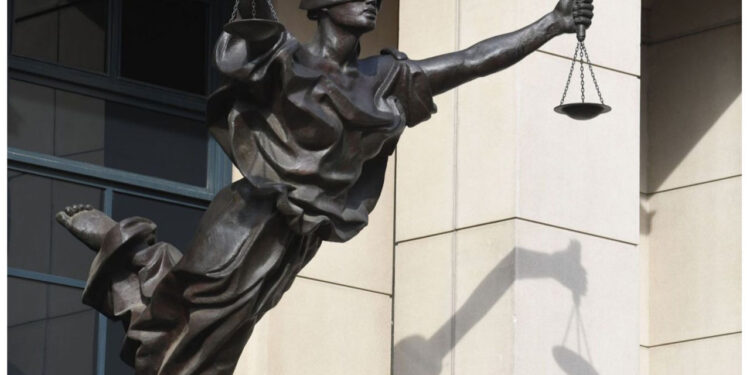former first responder Jeremy Cooper received a four-year probation sentence for the tragic death of Elijah McClain.
He is the last of three men to receive a sentence in McClain’s death.
Judge Mark Warner has imposed a sentence that includes 14 months of jail time with work-release and 100 hours of community service.
He will begin serving his sentence on June 7th.
Warner emphasized the significance of Elijah McClain’s life, both in the past and in the present. He expressed his disbelief at the unfolding of events and the specific details surrounding this case.
In the 2019 killing, Cooper was found guilty of negligent homicide following the administration of ketamine by paramedics to sedate McClain, 23, during a police encounter in Aurora, Colo.
McClain, a Black man, was unarmed and had not been accused of breaking any laws when his life was tragically taken away.
Cooper was potentially looking at a prison sentence of up to three years. However, when delivering the verdict, Warner acknowledged that although Cooper had administered a higher dose of ketamine than recommended for someone of McClain’s stature, he had exhibited remorse and was unlikely to engage in criminal behavior going forward.
Cooper and his co-defendant, Peter Cichuniec, were convicted of negligent homicide in December. Cichuniec received a sentence of five years for assault, as well as an additional year for the charge of criminally negligent homicide.
McClain’s treatment before and after receiving ketamine was found to be inappropriate.
Colorado Attorney General Phil Weiser expressed his belief that Elijah did not engage in any wrongdoing on that fateful evening. He emphasized the value of Elijah’s life and expressed his conviction that Elijah should still be alive today. Weiser emphasized the importance of accountability, stating that the trials alone cannot bring justice. He highlighted the issue of officers unnecessarily escalating situations that do not warrant the use of force, which has tragically led to the loss of many lives.
McClain found himself in a confrontation with the police when they received a call reporting him as “suspicious.” Within seconds, an officer swiftly apprehended him and forcefully brought him to the ground. During this incident, McClain was held in a way that momentarily restricted the oxygen flow to his brain.










